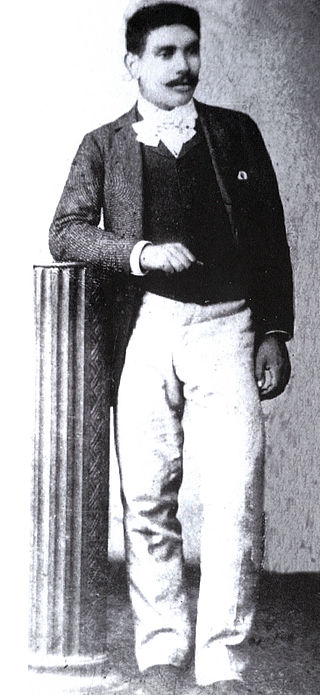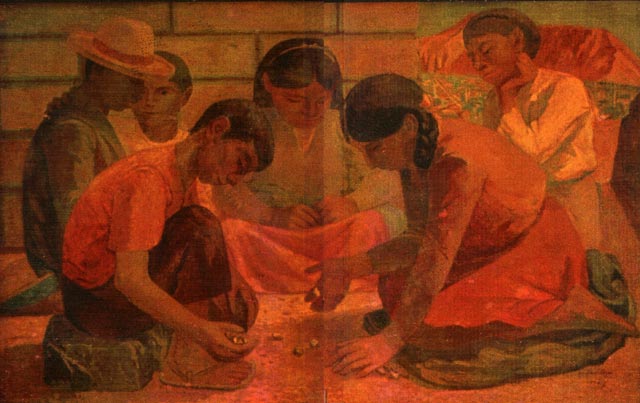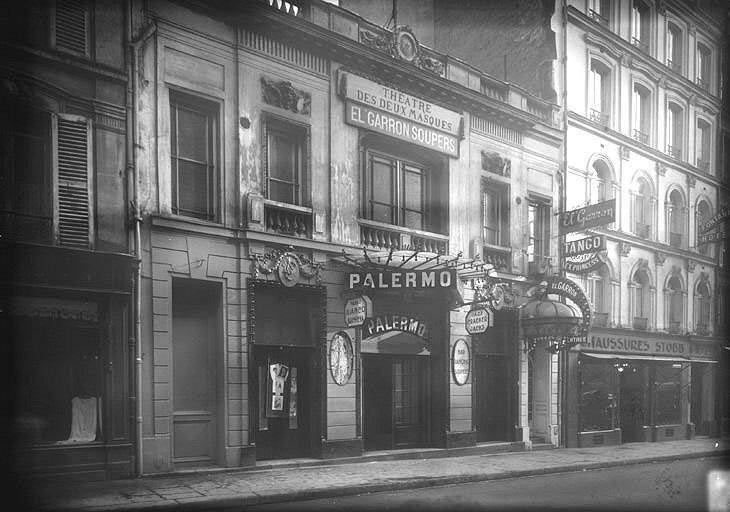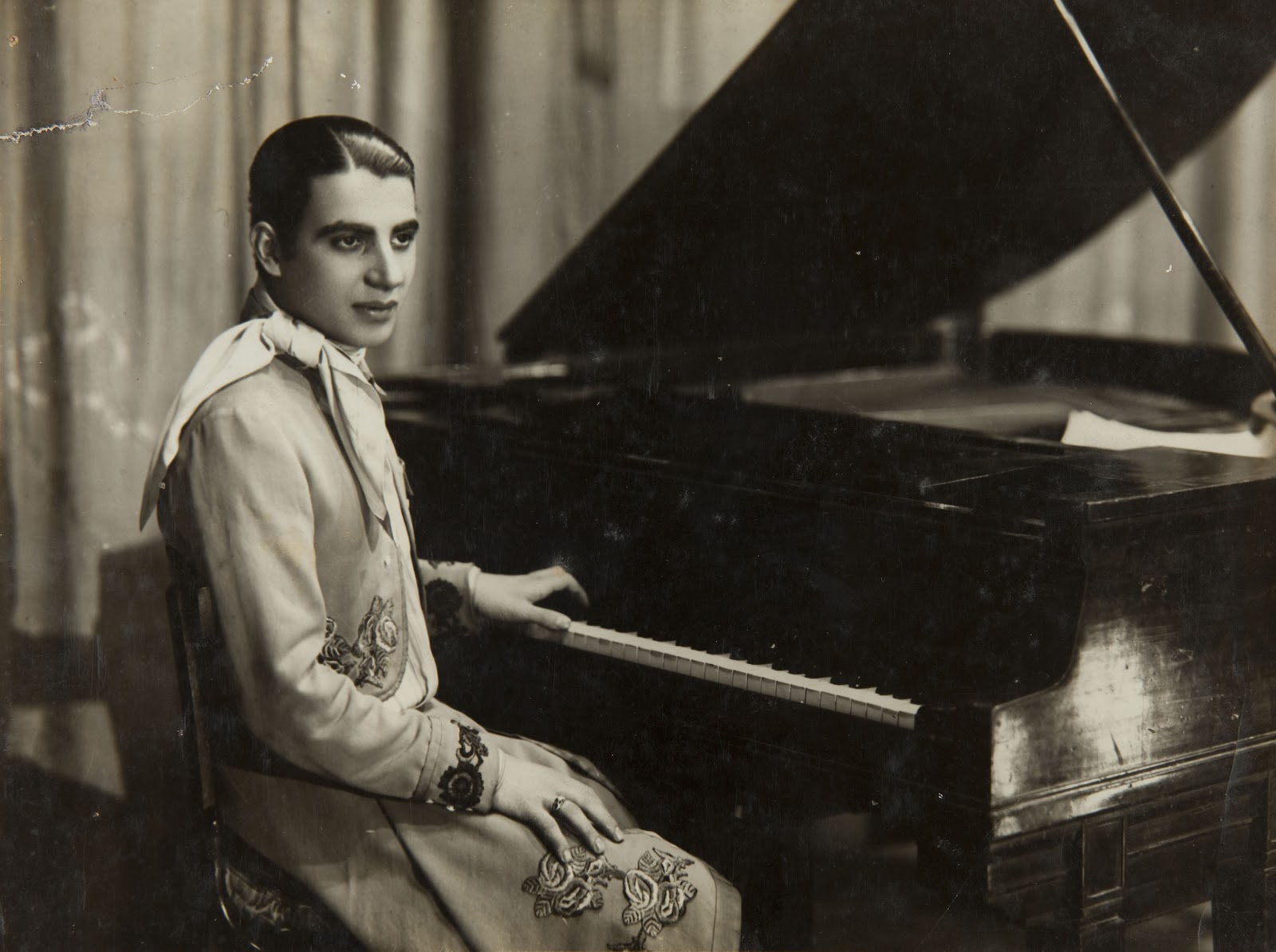I was very excited and a bit scared when the organizers of Missoula Spring Tango fest invited me to give a multimedia presentation on the lyrics of tango. I lectured on tango poetry before, but only in my native Russian, and always with the extensive use of metric-and-rhymed translations of tango into Russian. English language is a much harder medium for the metered poetry, and I only have one tango translation in English. So - uh oh - the May 2019 poetry talk would have to get by without actually reciting verses! And with as much multimedia as possible, for the ease of understanding (the slides are available here and a partial live-streamed video of the 1.5 hour-long talk, here). What a nice opportunity to think more about my fav subject! It's a go! The summary of the presentation is below.
Humble street origins: sailor’s taverns of the port… black neighborhoods … prostibulos

Neither the score nor the lyrics were written down
In fact even after the musical scores WERE written down, the lyrics remained unprinted … and largely unprintable
(on the right: the first known written musical score of a tango was composed in the 1880s by Rozendo Mendizabal, an Afro-Argentine pianist and a brothel musician. This tango, "El enterriano", is said to have been dedicated to an influential mobster from the province of Entre Rios)



Remembering Paris ... "I came as a wanderer who lost faith. I arrived to Paris, loaded with pain. The City of Light has become like the Sun for me. Your love brought me back to life!"



Tango Poetry:
Past to Present
"Explore self-expression in tango through song lyrics. During this multi-media lecture, travel through time beginning with sung poetry illustrating the universe of urban migrants during the Great Depression and their despairs and longs for bygone days. Learn how lyrical language is reborn with exuberance, threatened again by the censorship of the morality police, and finally reaches a beautiful synthesis at the zenith of the Golden age"Past to Present
Born a song, always a song
Neither the score nor the lyrics were written down
In fact even after the musical scores WERE written down, the lyrics remained unprinted … and largely unprintable
(on the right: the first known written musical score of a tango was composed in the 1880s by Rozendo Mendizabal, an Afro-Argentine pianist and a brothel musician. This tango, "El enterriano", is said to have been dedicated to an influential mobster from the province of Entre Rios)
The men and the women of the XIX c. tango lyrics
 El Portenito
Little Porteño, a bragging song about the toughest and coolest dude on the block, with lyrics which once changed from street to street
El Portenito
Little Porteño, a bragging song about the toughest and coolest dude on the block, with lyrics which once changed from street to street
- La Payanca
A rare example of a "folk tango" which has known original lyrics, rather crudely and lewdly praising a popular whore - La Morocha A perfect feminine counterpart to the Little Porteño, also full of bragging superlatives about the sweetest and most beautiful girl on the block, and also not without a dose of double entendre like La Payanca
Payanca, the Kechua word...
The tribal word from Peru - the verb pallar - meant to pick up, to catch from the ground. The gaucho equivalent of battle rap, the payada, was a real-time poetry contest where singers would pick up the thread of the song from each other, a stanza dueling with a stanza. The Kechua tic-tac-toe-like game, played with 5 stones thrown and picked from the ground (above), was called a payana. And a ground lasso, meant to be thrown to the ground to pick up an animal's front legs, was the payanca. This was also a street name of a legendary BsAs prostitute; who or what she picked up from the street, we can only guess, but there was a song dedicated to her, imploring her not to hurry with the paid-for job, because, well, sometimes slower is better.
Over time, La Payanca got very new, very clean lyrics. Actually, as the XX century arrived, the women stopped being protagonists for the new, cleansed tango lyrics. And the new character of the song was now a guy, an irresistible womanizer catching ladies with his "payanca of love". But much more recently, the genders of this song changed again, and the Payanca has become a girl like of old. Listen to Alex Krebs's gender-restored Payanca below, and read more about the song and about the children's game on my old blog here.
Apropos the last strong female protagonists of tango, I mentioned that it took full 50 years before they reappeared in tango - as in Donato Racciatti's "Gloria", a girl's song about love the money can't buy ... and I just had to jump ahead and to talk about the incomparable Tita Merello and her 1955 movie song "Se dice de mi", "They talk about me". How can one not to show Tita's superb clip? But do you know that she was singing a gender-transformed version of a song which was once written about a guy? Have you noticed that the girl in this song has manners of a compadrón, while the men in this song gossip like crazy and all lose their heads hoping for her affection? I hope that the, ahem, unusual gender stereotypes there all make sense now :)
The 1900s and 1910s: music of tango wins Argentina and world
- Victrola records
- Paris and New York Tango wins wide acceptance among the moneyed and educated classes, but strictly in its instrumental form
- …. And where are the lyrics?? ... Shunned.
The revolution of Carlos Gardel, 1917.
Tango receives its first set lyrics, written by a real poetic talent, Pascual Contursi.
It was a sad song about broken love, which set the tango standards for the decades to come.
It was also a song written in heavy Lunfardo slang, whose protagonist seems to be a pimp, and whose love suffering is made more painful by the fact that his flat has become all dirty and cluttered now that his girl has left. The slangy opening lines may be translated as "The bitch who dumped me, just as I was having the grandest time of my life..."
Let's listen to Gardel's voice from a later recording ... and then to a much later recording where the long-dead Gardel sings the same opening line.
"A sad thought, danceable" ?
What else do the tangos sing about?
- Quiz, anyone? Name other tango topics, beyond love / separation / romantic sadness
- The legacy of “Mi noche triste”
- A fragile macho needs some help...
- Tango songs as a protective male cocoon? Sports (especially soccer and racing!). Airplanes and fast cars. Country living. Drinking amd fighting. Patriotic themes... And, yes, misogyny galore.
Carrerito (1928). A tired cart-driver asking his 3 tired horses by name to please go over the last hill before home without any whipping...
Chau Pinela (1930) Very energetic, very misogynist monologue of a guy who actually ends up losing to the woman despite all the macho bravado. He wants to throw her out in a fit of jealousy. "I will find a million women like you! Stop talking already, who do you think you are? Get you stuff out of here and get lost!" ... but apparently she never does stop talking, and it is he who ends up packing his stuff and leaving for good.
Crisis, suffering, perservering and nostalgia: the Great Depression brings tango to its knees...
- The machos don’t cry! Pa’que lagrimear (1931)
- The world has become a pawnshop… (Cambalache 1934)
- The revolutionaries of the past got it right… (Milonga del 900)
... this part is already on the saved livestream video, so I will go into fewer details from this point on...
Refuge in the Monmartre, refuge in Ocean Dancing
Argentine restaurant "Palermo" and night club "El Garron", immortalized in several songs, where tango has found a safe haven during the worst years of Great Depression, when pretty much all the bands in BsAs went bust or stopped playing for the dancers.
Remembering Paris ... "I came as a wanderer who lost faith. I arrived to Paris, loaded with pain. The City of Light has become like the Sun for me. Your love brought me back to life!"
Fui…
Vagabundo sin fe y sin amor.
Que…
Yo…
Te encontré como un sol, mi amor!
Y…
Por tu amor yo viví...
Back home in Buenos Aires, a lone tango band keeps on playing for the dancers in the seediest establishment near the port, called, in English, "Ocean Dancing". The conditions must be too bad for the Argentines to take the job, but these guys are Uruguayans, and their homeland is hit by the economic crisis even harder. So Edgardo Donato and his musicians press on.
The 1932 "Hurricane" presages the rebirth of tango, planting the seeds of crazy energy. And what a storm it is! This hurricane isn't an atmospheric phenomenon, actually. She is a woman who destroys the metaphorical rose garden of love. Never again shall it bloom!
Reborn milonga as the only feminine heroine of tango?
"Milonga brava". A feminine protagonist, but not really a human being of flesh and blood "I am a milonga, I have no fear. I am a sound motif which progress with a swaggering gait. I was sung by the girl with sweet lips, and then they danced me on the broken flagstones of the tenement with the boy from upstairs".
Yo soy la milonga brava
Candombera y entradora.
Yo soy la milonga brava
Candombera y entradora.
Yo soy la expresión sonora
Que el progreso deshilacha,
Canción me hizo una muchacha
De boca fresca y golosa.
Y me bailó en la baldosa
Quebrada del conventillo,
Con el mozo del altillo
A quien le dio el corazón.
Young, fun, irreverent … too irreverent?
Juan D'Arienzo was derided for his youth appeal which, in hindsight, probably saved tango from total destruction. Hes fans were said to be too shallow, too preoccupied with beat, and, well, stupid. Who else would welcome tangos like this one, about hiccups? (Wait, there was one about farts, too).
A boy meets a girl in a club, but when it's time for sweet talking, he's suddenly overcome by hiccups. ( "I dream of turning into a gentle breeze which will caress your body ... HIC!!!")
The rumblings of the new, cleansing revolution...
Tango director Lucio Demare and his brother, movie director Lucas Demare, set out to change the regime and bring the country back from the morass of corruption and infamy. The social networks aren't there yet, but the brothers have music and movies at their disposal - and in 1942, they accomplish it, and a populist regime takes the reigns of power. A grand cleansing is in order, and one its first targets are the "degraded" lyrics of the tango songs. The following song is Demare's own. Can you figure out what has changed in the recording?
¿Quién pena en el violín?
¿Qué voz sentimental?
Cansada de sufrir
Se ha puesto a sollozar así...
Tal vez será su voz
Aquella que una vez,
De pronto se apagó...
Tal vez será mi alcohol
Tal vez...!
Su voz no puede ser
Su voz ya se durmió,
Tendrán que ser, nomás
Fantasmas de mi alcohol...
The censorship employs scores of the mediocre "lyrics hacks". Slang, crime, booze, gambling, everything must be removed. Some songs are simply unsalvageable. Luckily, a year later, the government reverses its course. But an amazing thing happens. The music industry realizes that tango doesn't have to be fast, or racy, or risque, to sell!
Tango itself becomes its own, beautiful subject
One of many veritable anthems of tango is :Una emocion", "A feeling", a manifesto song about tango itself... about its being simply a beautiful emotion which wins hearts without a pretense or a special effort...
translated by Derrick del Pilar
Wrapped up in a dream last night I heard it—
an emotion composed of things from my yesterdays:
The house where I was born,
the iron fence and the ivy,
the old carousel, the rosebush.
Its accent is the song of an emotional voice,
its rhythm is the measure that lives in my city—
it has no pretensions,
it doesn’t want to be lewd,
it’s called tango, and nothing more.

